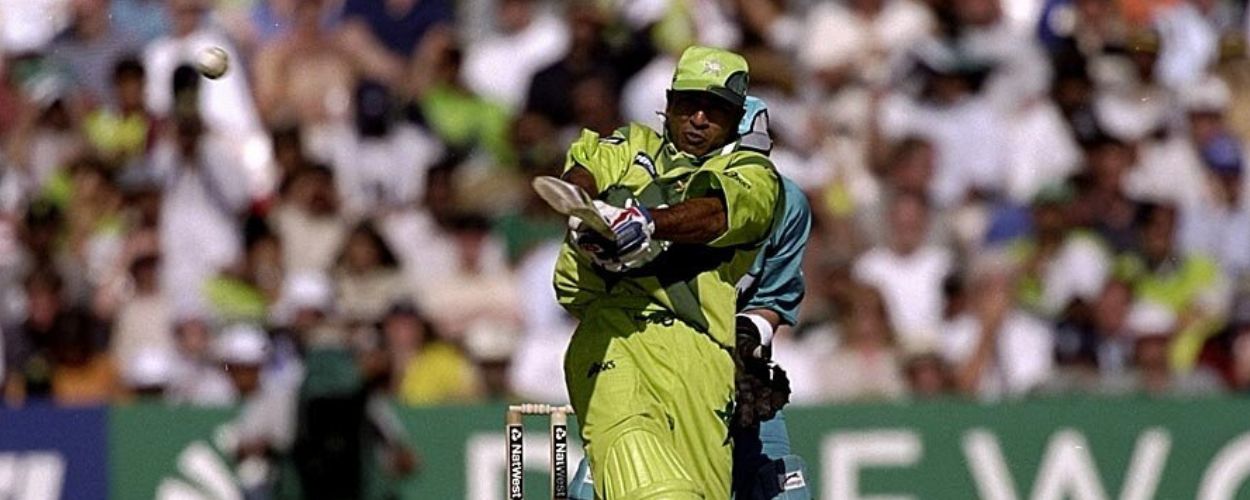Saeed Anwar, born on September 6, 1968, in Karachi, Pakistan, is a name that resonates with elegance, grace, and sheer brilliance in the world of cricket. Anwar’s journey from a young boy with a dream to becoming one of Pakistan’s greatest cricketers is a testament to his unwavering dedication and passion for the game.
Early Life and Struggles
Anwar’s love for cricket was evident from a young age. Growing up in Karachi, he honed his skills on the streets and local grounds, dreaming of one day representing his country. His journey was not without challenges; he faced stiff competition and had to work tirelessly to make his mark. His early days were marked by rigorous training and a relentless pursuit of excellence. Despite the hardships, Anwar’s talent and determination set him apart from his peers. He would often play late into the evening, perfecting his craft and dreaming of donning the green jersey of Pakistan.
Rise to Prominence
Anwar’s talent was first recognized during a first-class match against the touring Australian side in 1988 at Peshawar. His impressive performance caught the eye of selectors, and he soon found himself representing Pakistan in international cricket. His ODI debut came in 1989 against the West Indies, and although he faced early setbacks, his determination never wavered. His elegant stroke play and ability to find gaps with precision made him a standout performer. His first century in ODIs came against Sri Lanka in 1990, marking the beginning of a remarkable career.
Dominance in ODI Cricket
Anwar’s true prowess shone in One Day Internationals (ODIs). He was known for his wristy stroke play and ability to dominate bowlers with his elegant drives and cuts. His most memorable moment came during the 1997 Independence Cup in Chennai, where he scored an unbeaten 194 against India, breaking Viv Richards’ record for the highest individual score in ODIs at the time. This innings is still regarded as one of the greatest in ODI history. Anwar’s ability to play both spin and pace with equal ease made him a versatile and formidable opponent. His consistency in ODIs earned him the reputation of being one of the best openers of his time.
Test Cricket Success
In Test cricket, Anwar was equally formidable. He scored 11 centuries in 55 Test matches, with a highest score of 188 not out against England at the Oval in 1996. His ability to anchor an innings and play long, patient knocks made him a vital part of Pakistan’s batting lineup. His partnership with Aamir Sohail at the top of the order was particularly successful, providing solid starts for the team. Anwar’s technique and mental toughness allowed him to excel in different conditions, whether on the fast, bouncy pitches of Australia or the turning tracks of the subcontinent.
Personal Life and Challenges
Anwar’s career was not without personal challenges. The tragic death of his daughter Bismah in 2001 deeply affected him, leading to a period of introspection and a renewed focus on his faith. This tragedy profoundly impacted his life, leading him to find solace in spirituality and religion. He retired from international cricket in 2003, citing a lack of selection and a desire to quit while he was ahead. Despite his retirement, Anwar’s legacy continues to inspire young cricketers in Pakistan and around the world. His humility and grace off the field have also made him a respected figure in the cricketing community.
Legacy and Impact
Saeed Anwar’s impact on cricket extends beyond his statistics. He is remembered for his stylish batting, his ability to play under pressure, and his sportsman spirit. His contributions to Pakistan’s cricketing success, including being part of the team that reached the final of the 1999 Cricket World Cup, have left an indelible mark on the sport. Anwar’s records and accolades, such as his multiple centuries in both ODIs and Tests, are a testament to his skill and dedication. His influence on young cricketers is evident, as many aspire to emulate his style and success.
Retirement and Post-Cricket Life
After retiring from cricket, Anwar remained connected to the sport through various coaching and mentoring roles. He has been actively involved in youth development programs, sharing his knowledge and experience with the next generation of cricketers. Anwar’s transition from a player to a mentor has been seamless, reflecting his deep love for the game. His contributions to cricket continue to be recognized and celebrated, ensuring that his legacy endures.
